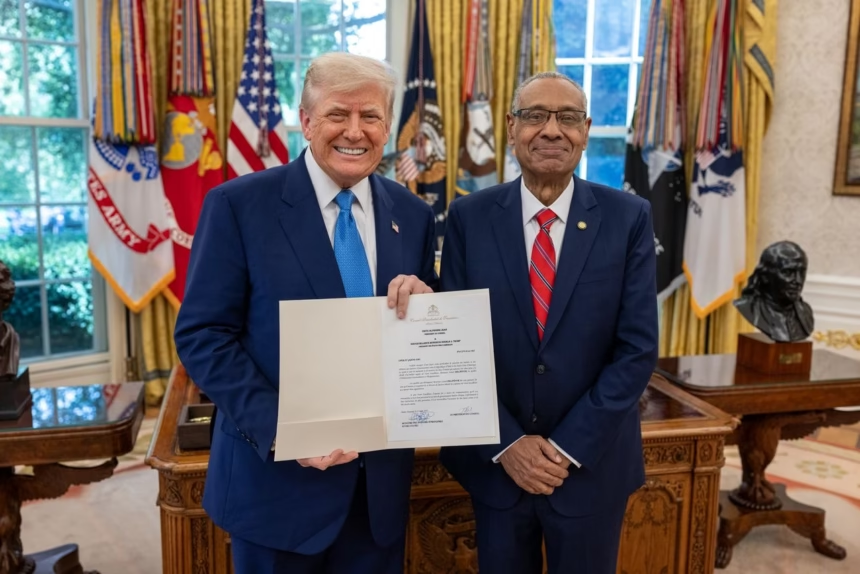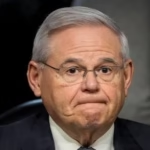Haitian diplomat Lionel Délatour officially assumed his role as Haiti’s ambassador to the United States on Monday, June 16, 2025, after presenting his credentials to U.S. President Donald Trump during a formal ceremony held at the White House. Appointed on March 12, Délatour takes on a highly strategic position amid the current state of Haitian-American relations.
Ambassador Lionel Délatour’s presentation of credentials to President Trump symbolizes a renewed commitment to diplomatic ties between the two nations. However, this gesture comes at a time when Washington is closing its doors to the most vulnerable Haitians, including families seeking protection.
During the ceremonial proceedings, Mr. Délatour also signed the presidential guestbook, affirming his commitment to representing the Haitian nation with dignity and to strengthening relations between Port-au-Prince and Washington.
Délatour takes office at a particularly sensitive time for Haitians living in the United States. The increasingly restrictive U.S. immigration policy has alarmed many Haitian families. The recent suspension of the CHNV humanitarian program—also known as the “Biden program”—as well as uncertainties surrounding Temporary Protected Status (TPS) now threaten the legal presence of thousands of Haitians on American soil.
In this context of instability, the ambassador’s mission is of crucial importance. He is tasked with amplifying the voice of the Haitian diaspora, advocating for the preservation of protective immigration measures, and fostering open dialogue with the U.S. administration.
Beyond migration issues, Lionel Délatour will also face other pressing challenges. Haiti has been added to the U.S. State Department’s blacklist, a classification that has led to the suspension of visa services for Haitian nationals. This policy not only impedes people-to-people exchanges but also hampers efforts toward family reunification—often vital for Haitian communities living in the United States.
In such a climate, the ambassador’s ability to rebuild trust between the two governments will be key. A seasoned expert in diplomatic affairs, Mr. Délatour will need to draw on his full experience to ease tensions, revive bilateral cooperation, and promote a more stable and constructive image of Haiti abroad.
As humanitarian, economic, and political stakes intertwine, both the Haitian community and international observers will closely monitor the ambassador’s first moves. The challenges are immense—and so are the expectations.
It’s worth recalling that the U.S., under President Donald Trump, formally barred the entry of Haitian nationals—effective June 11, 2025—including those enrolled in humanitarian programs, despite the ongoing security crisis in Haiti. How can a state, without hesitation, speak of strong ties with a partner while simultaneously sanctioning and rejecting its people in distress?







